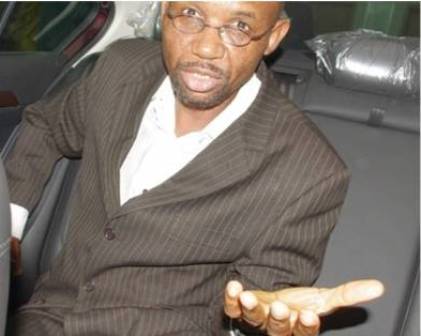FEMI OWOEYE
That made the auto industry blossomed in the 1970s and early 1980s was partly and, most important, federal government import restriction order. Great Britain did it in the 60s. South Korea did it. Nigeria did it until President Shehu Shagari assumed office 1979 and opened the nation’s border to imported Asian and European automobiles.
Those imported vehicles beat Nigerian locally made new automobiles in terms of price and sophistication, not in terms of quality though. They priced less than, for instance, Peugeot, which sold for about N5000. That profligate regime of Shagari wasted the nation’s foreign exchange that should have been spent on steel rolling mill and research into auto technology, all of which the auto industry then needed to move to the next level.
The Nigerian auto industry never recovered. A number of auto manufacturing plants closed down. Volkswagen, the then maker of masses cars, Volkswagen Beetle, was shut down and all workers thrown into unemployment market. Peugeot survived on government purchase. Reason: It is gazetted that no Nigerian government functionary or parastatal shall purchase any Fully Built Up (FBU) imported vehicle, equivalent of which is manufacture red or assembled in Nigeria. I gathered the gazette is still there, which made one wondered why the nation’s lawmakers would deliberately flout the order by adding to specification or armour tank they needed as their official vehicles.
The case is simple. Even if the oil now sells above $100 per barrel, there should be no going back in President Buhari Regime’s economic diversification, which should by no means be restricted to agriculture. Auto industry is capable of diversifying into 100s of industries, talking about component manufacturing. From auto manufacturing, Nigeria could end up having 100s of component manufacturing plants set up across the country and the nation will never suffer from FOREX scarcity again.
However, Nigerians should change attitude about consumption of foreign goods, including automobiles. Think about it this way: Every time you buy an imported car or food, you are keeping on jobs children of other countries, while yours leave schools jobless. Every time you eat foreign processed food, you are eating the future comfort of your own children and the nation’s leaders of tomorrow.
Whereas, when you buy a made in Nigeria Peugeot, Kia, Nissan, Toyota, Innoson, Hyundai, Volkswagen, Ford, etc, even if more expensive, you are indirectly creating jobs and keeping Nigerian youths on employment. Initially, it will feel tough, as things have been, but at the long run, our nation will experience prosperity.
Our power drunk lawmakers, governors should, from 2017 buy only locally made vehicles. And this idea of riding about in cars built like armoured tanks need to stop. Afterall, in those days, government functionaries used to ride about in official Peugeot 504 and 505.
President Muhammadu Buhari should practice what he preaches by adapting Nigerian presidential car to only locally made vehicle. Nigerian auto manufacturers are capable of making a presidential car.
More than that, law prohibiting Nigerian government functionaries from buying cars that are not made in Nigeria should be tightened.
Minister of power needs to ensure Nigeria power generation increases tremendously in 2017 so that likes of Dunlop and Michelin that left the country, due to high cost of power would return. In fact, it will not be out of order to give Nigerian manufacturers subsidy on power cost.
Revival of the nation’s steel Rolling Mill should be made a reality this time.
More funds should be pumped into automotive local content research. For it is not all about road cars. Nigerians should be moved to a level of making our own agriculture tractor and rotavator engines. All these will use fuel.

Therefore, latest from the end of this year, Nigerians should begin to reap the benefit of removal of fuel subsidy. Nigerians will like to see Local refineries taking off not beyond 2017.
Why can’t we develop solar powered cars? The opportunities are endless in the auto sector. And if president Buhari’s regime and his team could think outside the box, the CHANGE message will be written on marble forever.



